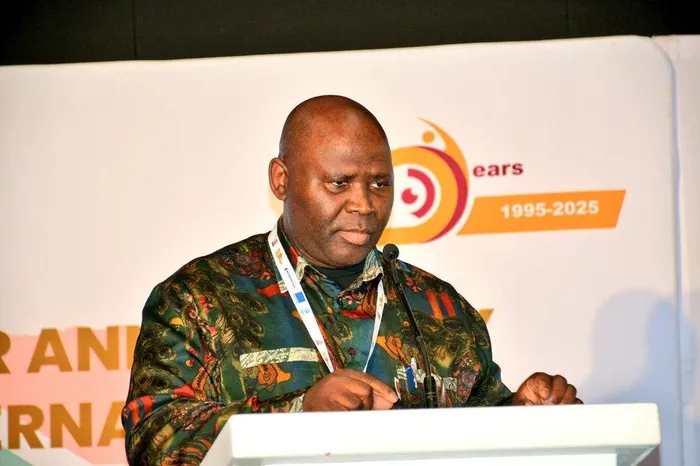Weak, fragmented State threatens South Africa’s development goals - Fikeni
ECONOMY

Professor Somadoda Fikeni said the country’s governance structures have been severely weakened, with poor implementation following commissions of inquiry and well-intentioned policy proposals.
Image: Supplied/X
Banele Ginindza
South Africa’s inability to meet the targets of its National Development Plan (NDP) is rooted in years of corruption, political fragmentation, and institutional decay, according to Professor Somadoda Fikeni.
Speaking at the launch of the Maphungubwe Institute for Strategic Reflection’s (MISTRA) latest publication, The State of the South African State, Fikeni said the country’s governance structures have been severely weakened, with poor implementation following commissions of inquiry and well-intentioned policy proposals.
The new MISTRA book, authored by leading scholars, interrogates the capacity, ethics, and accountability of the South African state, offering recommendations to strengthen governance and restore institutional integrity.
Fikeni said the implosion and internal divisions within the African National Congress (ANC) had spilled over into key state institutions, resulting in poor discipline and compromised appointments.
"The weaknesses identified are weaknesses in terms of institutions, they are fragmented, also there are no filters to get ethical individuals in and discipline management has always been very poor,"he said.
"Some people are on suspension for eight, 10, 12 years. People expelled in one province are reappointed in another. In some cases promoted to DGs and DDGs, South Africa is the only country where you fail upwards because of the systems which are very poor in filtering."
He called for urgent reforms to professionalise the public service, strengthen the autonomy of the Public Service Commission, and clearly separate politics from administration.
Fikeni said the proportional representation system — with its low threshold for parliamentary entry — had led to political fragmentation and unstable coalition governments, further weakening state capacity.
"If you are to strengthen the State, one of the reforms in professionalising the politics and regulating coalitions would have to be factored in. Also building state capacity in the main rests with the reforms affected in the public sector, that capacity of bureaucracy gives wings to political principles," he said.
"What we seem to have done in SA is to build some of the institutions but not invest in the individual occupying the positions, who is going to make sure administrative programmes can be implemented."
Fikeni criticised the absence of clear national interests and focus within government planning, saying that policy frameworks like the NDP often try to address too many priorities at once.
He said even in the NDP and other planning documents, whenever SA meets, the priorities rise to a 100 and so forth but most countries that are serious about statecraft will have four or five key focal areas and they will mobilise resources for those areas because they understand them to be key to the national interest.
"On top of all the challenges, we should resists the temptation to try to solve the problems of the past," he said.
"When you are also looking at the emerging trends such as your geopolitical volatility and conflicts, which are panctuating the whole world and shifting so many other things, the trade wars that you are beginning to see, the arms race and weaponizing of technologies, which used to be commercial."
Fikeni described the rise of Artificial Intelligence (AI) — from basic systems to generative and smart AI — as a “double-edged sword,” capable of enhancing efficiency, policy planning, and data management, but also increasing exposure to fraud and cybercrime.
“The question is, fragmented as we are — with impulses of being federal, confederal, and unitary at once — do we have the agility and common purpose to respond effectively?” Fikeni asked.
He concluded by urging decisive leadership and structural reform to restore state capacity and ensure South Africa’s institutions are fit to meet both domestic and global challenges.
BUSINESS REPORT